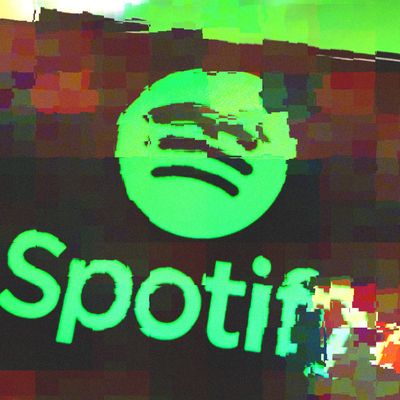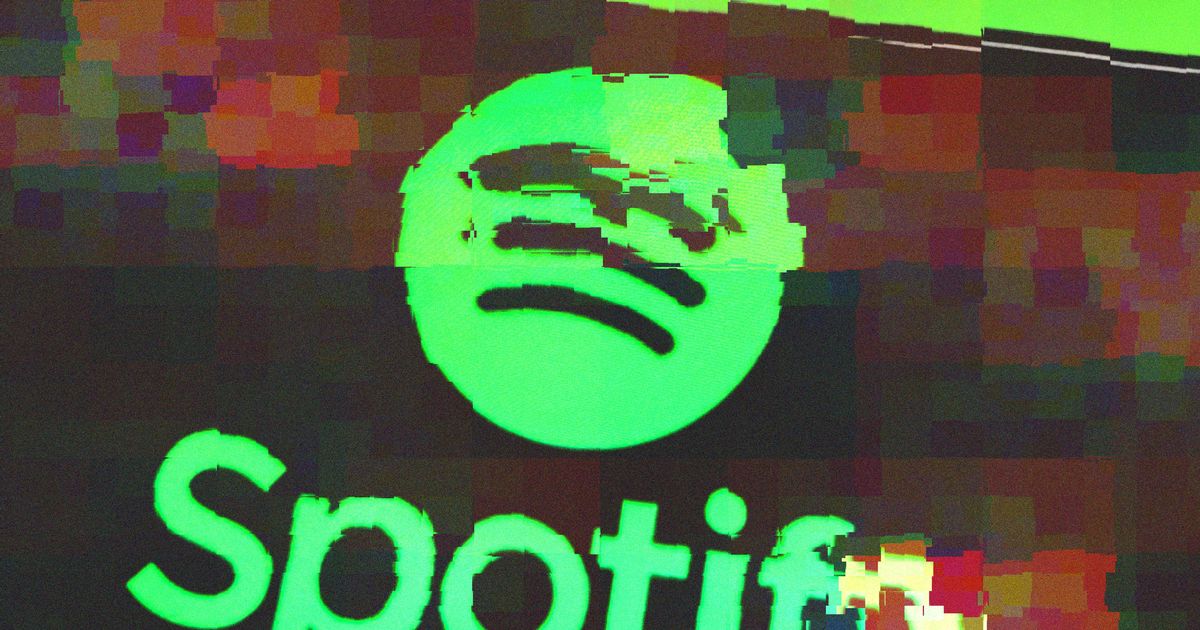
Image-Illustration: Intelligencer Photo: Getty Photographs
This week, the indie music platform Bandcamp laid off approximately fifty percent its personnel immediately after its second transform of possession in as lots of several years. The site’s new owner, music-licensing services Songtradr, has promised to “keep all the current Bandcamp services that fans and artists enjoy,” but artists on their own sense a turning position. “God this is disheartening,” wrote John Darnielle of the Mountain Goats. “Bandcamp was an unalloyed superior in the audio organization.” The platform, reported Kimya Dawson of the Moldy Peaches, “was the only position I felt protected and supported as an artist.” Bandcamp, by way of which musicians have bought $193 million in downloads and physical media in the very last year, was, for a specified sort of artist, a refuge from the brutal economics and advertising equipment of streaming. As jazz musician and critic Ethan Iverson set it: “The path narrows.”
Meanwhile, Spotify has its very own news for musicians fearful about making a dwelling: a new “Merch Hub,” exactly where customers are advised merchandise dependent on what they’ve streamed, as well as new profile pages by way of which artists can provide reside tickets and endorse items. Musicians can also direct benevolent listeners to CashApp or crowdfunding sites like GoFundMe. These are, in Spotify’s text, methods to complete its “mission” of “enabling artists to stay off their art.” In context, artists could possibly go through the give another way:
“Hey, we’re the only game in town. May as effectively enjoy.”
Streaming songs received, at least in the perception that almost everything else missing. In 2022, according to the Recording Industry Association of America, streaming solutions accounted for 84 % of recorded songs revenues, with physical media accounting for 11 percent and electronic downloads including up to 3 p.c (and falling). For most listeners, the calculation is very simple plenty of. Streaming is much less expensive than shopping for audio. It’s less complicated and at the very least nominally far more moral than outright piracy. It is also operationally embedded in the lifestyle: If you want to share a track, album, or playlist with friends or an viewers, you’ll probably default to Spotify, the greatest streaming company by considerably.
Spotify’s success is intensely capable, even though. It might be the Netflix of tunes, but it is under no circumstances posted a gain in 2022, with practically a 50 percent-billion consumers around the earth, all over 200 million of whom pay out for the assistance, it shed 430 million euros (the business is dependent in Sweden). This strange, loser-consider-all final result — which takes place from time to time in tech, exactly where dominant corporations are permitted to bleed cash for yrs in pursuit of prolonged-phrase sector domination — means that the audio industry’s greatest success tale of the 21st century can also look like it’s flailing. There have been layoffs and a value hike. The firm is pulling again from its splashy investment decision in podcasting. Royalties are by far its largest running charge, but exterior of a compact slice of the maximum earners, several artists have been stunned by how tiny income finishes up in their pockets.
Spotify’s response to criticism from artists has tended to alternate involving pleading poverty and tough speak about The Way Issues Are. In 2020, CEO Daniel Ek defended Spotify’s payouts, suggesting that “obviously, some artists that applied to do nicely in the previous could not do nicely in this foreseeable future landscape, where by you cannot report songs once just about every three to four decades and think that’s likely to be sufficient.” In 2023, he emphasised that in quite a few conditions, a fraction of Spotify’s payouts helps make it to artists thanks to arrangements past Spotify’s regulate. “What Spotify does is we spend out to these history providers and these publishers,” he claimed, “and really do not know what personal specials these artists may have.” This is correct, but Spotify isn’t just likely to struggle with the rest of the field. (One particular detail that Spotify does manage is its totally free, advert-supported tier, which accounts for additional than fifty percent of its listeners and which critics say dilutes payouts significantly.) Large audio groups — some of which, which include Universal, Sony, and Warner, are aspect-house owners of Spotify — are much happier with the arrangement than some of their artists, and understandably so. In the center of a significant write-up-world wide web field contraction, Spotify didn’t reduce them out (while that may well continue to be part of the lengthy-time period plan). It bailed them out and grew to become their most precious spouse.
In lieu of royalties, functioning artists are left with touring and merch income, and they have to address streaming — the main way folks are actually consuming their perform — as a sort of promotional software for off-system ticket and T-shirt revenue. In this scenario, Spotify nevertheless exerts a ton of influence, controlling which artists get observed and by whom by way of its common curated playlists and omnipresent recommendation resources. To users, it resembles a streaming support to artists, it can come to feel like an idiosyncratic but all-essential social network wherever they have to suss out the wants of not only of the platform’s listeners, but the system alone. These is Spotify’s centrality to the business that it’s even modifying how well-known tunes seems.
Bandcamp was launched just a single 12 months soon after Spotify, in 2007, and has positioned itself as a little island independent from the brutal streaming financial state — a desired destination for artists to link a lot more specifically with fans, sans algorithmic mediation. It was by no means genuinely a competitor to Spotify, but it was an alternate a put exactly where enthusiasts, even if they didn’t want to spend to down load tunes, could retain tabs on artists, get updates about excursions, buy merch, discuss with one particular one more, or uncover out about new songs (Bandcamp’s layoffs included most of its editorial workforce, whose coverage and tips were a kind of throwback, analog counterpart to Spotify’s customized, automated recommendations). It was a partial remedy to some of streaming’s challenges. To artists, this was truly worth far more than the sum of its sections — or payouts.
By stepping onto Bandcamp’s turf and staking its declare above artists’ non-streaming sources of income — by, in the company’s terms, permitting customers to “shop your provides extra easily” — Spotify will likely increase non-music sales for artists, but in the method fortify its placement as the songs industry’s default system. It’s approaching challenges the way just about every late-phase online platform does, at least in advance of it discovers its boundaries: by presuming complete victory and handle over the field it is been functioning to enclose. Spotify’s success as a primary streaming assistance ultimately entitled it to a central position in how audio is produced and distributed. Why shouldn’t its success in music promotion make it the most important platform for touring, merchandising, and fandom in common? For Spotify, in other phrases, the option to its challenges is and will normally remain the same: far more Spotify.
